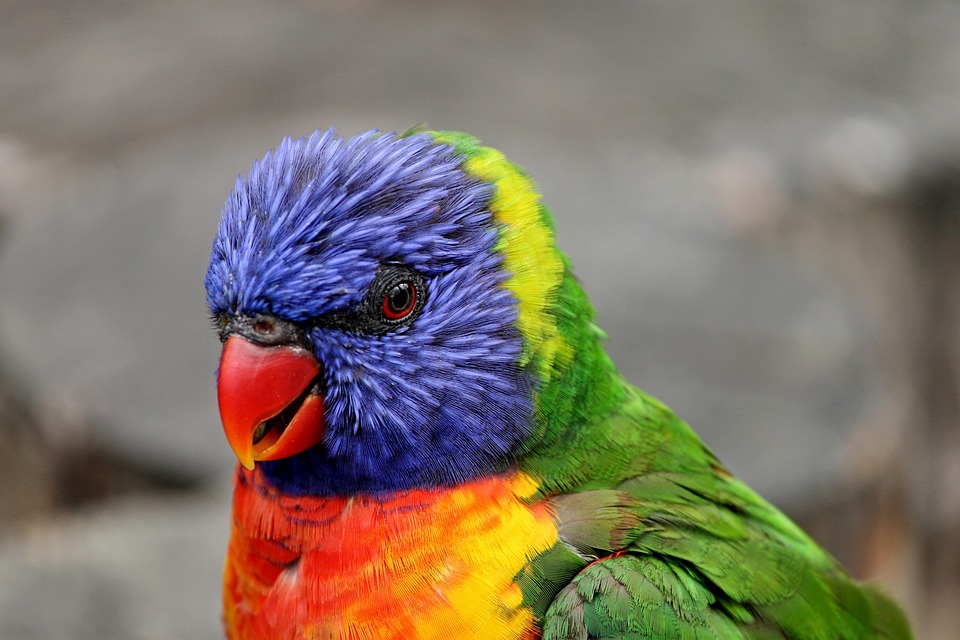**Title: Addressing Aggressive Parrot Behavior: A Guide for Parrot Owners**
**Introduction**
Parrots are known for their intelligence, charm, and vibrant personalities. However, just like any other animal, parrots can sometimes exhibit aggressive behavior. Understanding the underlying causes of aggression and implementing effective strategies to address it is crucial for maintaining a harmonious relationship with your feathered friend. In this article, we will explore the various factors contributing to aggressive parrot behavior and provide practical tips to help you address and prevent it.
**Understanding the Causes of Aggression in Parrots**
1. **Territorial Aggression**: Parrots are naturally territorial creatures and may become aggressive when they feel their territory is being invaded.
2. **Fear and Insecurity**: Parrots that have experienced traumatic events or lack proper socialization may exhibit aggression as a defense mechanism.
3. **Hormonal Aggression**: During breeding seasons or hormonal changes, parrots may display aggressive behavior as a means of asserting dominance or protecting their mates or nests.
4. **Redirected Aggression**: Parrots sometimes redirect their aggression towards their owners or others due to frustration or stimulation from external factors.
5. **Lack of Stimulation**: Boredom and lack of mental and physical stimulation can lead to frustration, which may manifest as aggressive behavior in parrots.
**Addressing Aggressive Parrot Behavior: Tips and Techniques**
1. **Create a Safe Environment**: Ensure your parrot has a spacious and enriched living environment with plenty of perches, toys, and hiding spots to reduce stress and territorial aggression.
2. **Establish a Routine**: Consistency and predictability can help alleviate anxiety in parrots. Establish a daily routine for feeding, playtime, and social interaction.
3. **Positive Reinforcement**: Use positive reinforcement techniques, such as rewarding good behavior and ignoring or redirecting negative behavior, to encourage desired conduct.
4. **Socialization and Training**: Gradually introduce your parrot to new people, experiences, and other animals, ensuring positive associations. Training sessions can also help redirect aggression into more appropriate behaviors.
5. **Physical and Mental Stimulation**: Provide your parrot with ample opportunities for exercise, exploration, and mental enrichment. Interactive toys, foraging puzzles, and frequent out-of-cage time can help alleviate boredom and prevent aggression.
6. **Hormonal Management**: Be aware of your parrot’s hormonal cycles and adjust their environment accordingly. Limit nesting opportunities, avoid excessive petting, and maintain consistent light and dark cycles to help regulate their hormones.
**FAQs: Frequently Asked Questions about Aggressive Parrot Behavior**
1. *How can I tell if my parrot is being aggressive or just playing?*
– Aggressive behavior often involves biting, lunging, hissing, or fluffing feathers aggressively. If your parrot’s body language appears stiff, their eyes are dilated, and they emit warning vocalizations, it is likely aggression.
2. *What should I do if my parrot bites me?*
– Stay calm and avoid reacting negatively. Gently remove your hand, redirect their attention, and provide positive reinforcement for desired behaviors. Seek medical attention if the bite breaks the skin or causes significant pain.
3. *Is it possible to completely eliminate aggressive behavior in parrots?*
– While it may not always be possible to completely eliminate aggression in parrots, with consistent training, environmental adjustments, and a deep understanding of your parrot’s needs, you can significantly reduce and manage aggressive behaviors.
4. *Should I punish my parrot for aggressive behavior?*
– No, punishing your parrot for aggressive behavior can exacerbate the issue and damage the trust between you. Focus on positive reinforcement and redirecting their behavior towards more appropriate actions.
In conclusion, understanding the causes of aggressive parrot behavior and implementing effective strategies can help you address and prevent aggression in your feathered companion. By creating a safe and stimulating environment, providing proper socialization and training, and managing hormonal fluctuations, you can foster a harmonious and loving relationship with your parrot. Remember, patience, consistency, and empathy are key to addressing aggressive parrot behavior successfully.









